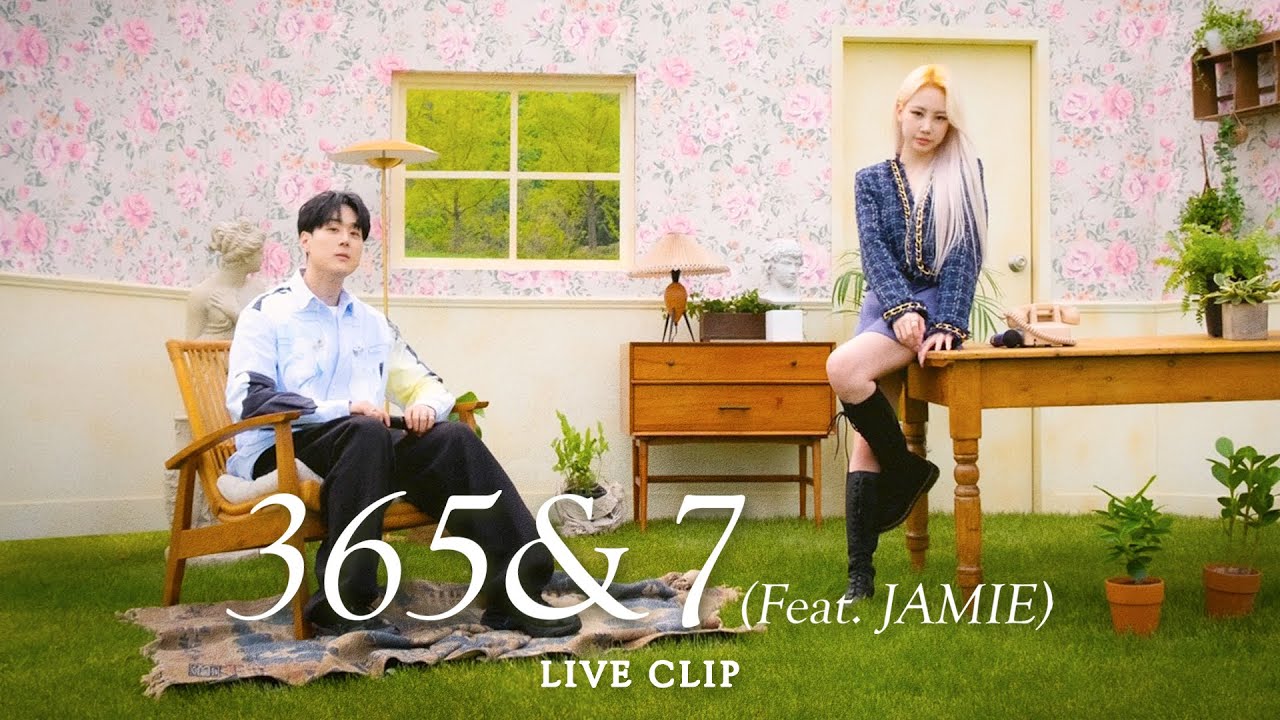María Becerra. Still from ‘Mi Debilidad’ music video, directed by Julián Levy
Welcome to Certified Gold, a new column dedicated to international pop music. My name is Joshua Minsoo Kim, and I’m a high school science teacher, music writer, and Korean American who’s spent his entire 29-year existence living in the American Midwest. I say all these things because it should clue you into how I could never possibly understand the music covered here to the extent that its active participants and local fans could. This isn’t to sow doubt regarding my expertise (I’m a genius) or to dissuade anyone from checking this stuff out (you’re great too), but to make clear that this column – as with all music writing – is about exploration and curiosity.
When I inquired to the Quietus about starting this column, I noted the importance of an article I read ten years ago by Neil Kulkarni. While it’s focused on the ever-underrated Pram, there is a moment where Kulkarni mentions his pop philosophy: “Pop is, I reiterate, a way of listening, the only way of listening I ever learned or cared for. It means giving everything a chance, but letting nothing off the hook.” That sentiment has stuck with me all these years, and has been the one true constant in my approach to art.
It has meant appreciating the simple pleasures of a solid topline regardless of genre. It’s led to me questioning musical biases and probing conflicted feelings I have about any given song. It’s instilled a joy in finding links between music from around the world, and finding throughlines between the past and present. More than anything, it’s the reason I still feel like a giddy teenager discovering worlds of music for the first time.
The goal for this column is simple: I want to highlight pop music that isn’t discussed much on English-language publications. Virtually everything on this column will avoid music that charts high in the US or UK. I also want to steer clear of music that’s guaranteed to get reviewed by websites like the Quietus (e.g. Charli XCX, FKA twigs, Björk). While a sizable chunk of music in this column will be popular in their home countries, I’d be surprised if readers note that they were already familiar with every single song covered here. Who has time for all this? I surely don’t, as pop aficionados will notice by the lack of representation here of several important countries. Consider this less of a guide than a supplement to your own journey of pop music listening.
To set some expectations, know that this column is bimonthly and will feature ten songs that are released in the two months prior to posting. Given that ten songs is a laughably small number for a pop music column – there are dozens of countries releasing excellent pop music today – do know that my personal tastes will come through. That means music largely sung by women and, according to the list of songs below, a deep love for music from Brazil and Japan. Lots of hyperpop, too. Still, I’ll always try to showcase a wide range of music.
For the inaugural issue, I’m highlighting 20 pop songs released between January and July of this year. More specifically, these are songs that defined my summer (by the time you’re reading this, I will have started teaching my first class of the school year – a decent indicator that my summer is officially over). I love them all a lot, and consider them inspiring and exciting and important to my 2021 experience. They’re bangers. They’re bops. They’re certified gold.
Dennis, Ludmilla & Xamã – ‘Deixa de Onda’
(Sony)
Funk carioca, the Brazilian party music originally inspired by Miami bass and hip hop, is one of the most electrifying strains of pop today. Generally, I’m a fan of when it and its many offshoots are perceptibly slapdash – instruments sounding abrasive, obnoxious, or aggressively mixed – because the music’s raw production is a testament to how the simplest elements can keep anyone energised (the result, naturally, is an even stronger desire to dance). Still, it’s always admirable when songs in this sphere are slick and accessible, and it’s no surprise that ‘Deixa de Onda’ is one of the year’s best hits given its all-star lineup. Its lyrics find two lovers fighting, and both Ludmilla and Xamã spend ample time declaring that they never even loved each other. When the latter moves from singing into rapping, the song tumbles into a trap beat, and his disgust becomes more and more palpable as he recounts a night involving a fake friend, a glock, and pants almost falling down. Drama abounds but the party rages on.
UNIIQU3 – ‘Move Ya Body’
(135 WORLDWIDE)
“Jersey Club is your morning coffee and your midnight Red Bull”, UNIIQU3 aka Cherise Gary once remarked. She’s been responsible for some of the most energising Jersey Club of the past several years. Case in point: ‘Move Ya Body’, a scorcher from her BITCHES IS OUTSIDE VOL. 1 EP. Like the genre’s best works, it feels supremely economical, every siren and synth stab and vocal sample overflowing with enough energy to make you feel like the only thing that matters in the world is doing everything you can to follow the song’s instructions. It sounds simple, but there’s a careful precision here that sidesteps any sense that this is clinical. Really, this could be stretched to ten times its length and it still wouldn’t lose its fire.
Conelli, Gwerl, Turian Boy – ‘Fresa & María’
(Vlex)
Conelli and Gwerl are two little-known artists creating Spanish-language pop that draws from a multitude of styles beloved by online-bound pop music fans. Last year, the former released ‘Otra Vez’, a song whose video was indebted to K-pop (specifically, the production company Digipedi and their video for LOONA’s ‘Love&Live’), while the latter released ‘Cute Aggression’, an adventurous, synth-heavy art-pop song (it’s notable that their Spotify artist playlists feature DIA and KÁRYYN, respectively). These songs were produced by Turian Boy, who also handles Conelli and Gwerl’s collaborative track ‘Fresa & María’. It’s very much in the PC Music mould, with sputtered AutoTune and cutesy vocals atop glossy synths. When the chorus arrives with a steady, stomping beat, it grounds the more sporadic instrumentation found in the verses, like a declaration that they’re strutting into the club. “Party, party, party, party”, they chant gleefully. Even if they didn’t sing it, you’d understand the vibes immediately.
Alicaì Harley – ‘Put It On You’
(Parlophone)
When ‘Tek It To Dem’ came out two years ago, I was struck by how the Kingston-born, South London-based Alicaì Harley smoothly traversed different singing styles, letting every tonal change feed into a fuller portrait of who she was. ‘Put It On You’ is simpler in this regard, but the production – reminiscent of the best Afroswing tracks from four years ago – is more lush and a crucial storytelling element. The key is how so much of the beat, especially in its putty-like synth pulses, carry the flirty playfulness of Harley’s lyrics. “You know exactly what I need so I don’t say”, she sings, and all the unspoken communication concomitant to intimacy and sex feel embedded in the instrumentation.
pH-1 – ‘365&7’ (feat. Jamie)
(H1GHR Music)
No one does virginal R&B better than South Korea. So many of the country’s best rapper-crooners have a peculiar track record: their hard-edged, rappity rap often feels forced or inauthentic, while attempts at sweeter love songs have a charming believability, exuding the giddiness of a relationship’s honeymoon phase. Take pH-1’s ‘365&7’, a song that sounds like twinkly MapleStory music set to a trap beat. The ad-libs are cute, its processed vocal sample flows like ribbon in the wind, and the lyrics are all unsexed infatuation. Last year, singer Jamie released the Ariana Grande-indebted ‘Numbers’. Here, she name-drops the pop star and has the same wholesome outlook on love that Grande did on Yours Truly. Still, there’s playful flirting (“Hey Mr. Nerdy, where you at?”) and a welcome directness to her words (“Just don’t beat around the bush / And tell me that you’re mine”).
Ayra Starr – ‘Ija’
(Mavin)
If you were to ask me what my song of the summer was, I’d likely say ‘Ija’, the standout track from Ayra Starr’s debut EP. The Nigerian singer’s first single, ‘Away’, was an introspective kiss-off to a lover. She addresses a man here, too, but the mood is sunnier, the song about coaxing anxieties and letting this man know their relationship can go deeper. There’s a close-quarters intimacy in its mix of jazzy synths and clacking percussion, but it’s the serpentine bassline that anchors everything – it exudes a feeling of love brewing, of eyes locked and bodies ready to intertwine. In the chorus, Starr encourages her lover not to fight this feeling, and it’s hard not to feel such smooth confidence when ‘Ija’ runs through you. It’s sensual and low-key: a reminder of love’s everyday potency.
Paula Cendejas – ‘Sabaneta’
(Warner)
Last year, the Madrid-based singer Paula Cendejas released ‘Como habla una mujer’, a gorgeous ballad featuring C. Tangana (who, by all accounts, is responsible for one of the year’s best albums). The spiritual successor to that was a recently released duet, ‘Diferente’. More leftfield than either is ‘Sabaneta’, the first single from Cendejas’ Contragolpe EP. It sounds as if producer Carlos Ares disassembled a reggaeton beat and pasted its discrete parts into a shimmering collage. As Cendejas sings of a rocky relationship, the fractured beat becomes a prism of her anxiety, sadness, and tortured state. There’s no sense of resolve, just her voice buried in this void of dizzying sounds; it’s the sound of someone spiralling late at night, their head filled with never-ending worries.
María Becerra – ‘Mi Debilidad’
(300)
Argentinian singer María Becerra has said that ‘Mi Debilidad’ marked the first time she cried while writing a song. It makes sense: its lyrics are rooted in the kind of toxic relationship where everything revolves around the other person, charts how their every word and action determines how you feel – pain, anxiety, hollow satisfaction. There’s a warbling in Becerra’s voice, as if she’s fighting through tears with every word she cries out. “I don’t know how to get over you”, she sings, well aware of how trapped she feels. As strings and metallophone accent the track, there’s dignity and uplift in her confessional – it may feel painful now, but there’s an understanding she’ll soon break free.
Cassper Nyovest – ‘Siyathandana’ (feat. Abidoza, Boohle)
(Family Tree)
Amapiano – a newer strain of South African music in the lineage of bubblegum, Afrohouse, kwaito, Bacardi, and gqom – has been dominating the country for the past couple years, and has started to influence acts elsewhere in Africa too. The formula for creating an amapiano track is fairly simple, as Zimbabwean singer Sha Sha has noted: soulful vocals, jazzy keys, mesmerising drum loops. Incredibly, amapiano artists have been releasing albums that run two or three hours long. It feels, in one sense, a direct result of them not feeling beholden to the music industry – this style grew in popularity through WhatsApp groups – but also for how easy it is to listen to these songs. ‘Siyathandana’ is emblematic of the genre’s best and, indeed, the elements are familiar: log drums, a tempo around 112 beats per minute, and an oscillating siren-like synth that’s in so many of these tracks. Across its cozy seven-minute runtime, Boohle proves the star: she coos, every “oh” and “baby” brimming with enough warmth to broadcast that this is a love song. Rapper Cassper Nyovest complements her with his lower vocal range, but like Boohle, it’s in brevity that his words feel most evocative – short phrases, like the occasional “too much sauce”, are especially charming. Crucially, these ad-libs also create space for the song to really breathe, because more than anything, ‘Siyathandana’ is a track that invites you to feel impossibly content.
Konshens, Spice, Rvssian – ‘Pay For It’
(Ineffable)
All paypigs please rise for their new national anthem. On ‘Pay For It’, Jamaican dancehall artists Konshens and Spice have a constant back-and-forth that amounts to the former literally begging to buy the latter everything. At first, the chorus sounds like he’s making an exaggerated gesture, but by the time he croons, “Make me pay for it, for it, fooooor it,” you can sense the desperation in his voice. Spice plays her cards right, acknowledging that her own money has no relevance to all the designer clothes he should buy her. Both sing and rap with a magnetic confidence, and it’s always clear that both Konshens or Spice know exactly what they want, and that they can find it in each other. And they say romance is dead.
Gloria Groove – ‘Bonekinha’
(SB)
This ferocious funk carioca song from Brazilian singer, rapper, and drag queen Gloria Groove is all carefully calculated brash and pomp. She talks of being both a doll and a bad bitch, and as a searing guitar melody and metallic percussion provide the foundation, it’s the vocal performances that sell the cocksure attitude: bratty, fast-spoken moments alongside passages where Groove escalates her voice to towering heights. Given how her songs last year were pretty and amiable, it’s refreshing to hear her back in a more aggressive mode. It’s her best song since ‘Coisa Boa’.
4s4ki – ‘Gemstone’ (feat. Puppet)
(Victor)
Describing hyperpop to people is one of the most headache-inducing tasks as a music writer today because the genre is constantly evolving, requires explanations of various music scenes and internet culture, and is a loose descriptor in the first place. One could describe its newer artists as being in the lineage of PC Music (for its chipper, elastic synths and cutesy Western takes on pop), Drain Gang (especially for the slurred half-singing, half-rapping and trap influence), and J-pop (particularly the works of producer Yasutaka Nakata). Still, one can also hear Midwest emo, trance, chiptune, 2000s Western pop like Britney Spears, breakbeats (like in newer digicore, a SoundCloud-originated rap-focused genre with ample hyperpop overlap), and more in any random assortment of these tracks. Recently, Asian acts have been interested in partaking in this truly global music, reaching artists in South Korea and Vietnam, but most notably in Japan. 4s4ki is one of its most notable stars, and ‘Gemstone’ is a highlight from her second album Castle In Madness. Here, she brings on Puppet, an American artist who merges pretty electropop in the Porter Robinson mode (i.e. it’s clearly J-pop-indebted) with bombastic pop rock (it recalls the extreme positivity of easycore, a pop punk subgenre with breakdowns, typified by Four Year Strong). Puppet’s yells find an uneasy but exciting balance with 4s4ki’s AutoTune warbles, and it’s the drums – crisp hi-hats and booming snares – that bring this firmly into emo rap and 2000s pop punk territories. Puppet covered 4s4ki’s ‘Nexus’ last year, but this collaboration is an even better merging of their musical styles than that could’ve predicted. The song uses a gemstone as a metaphor for what you could be despite uncertainties and anxieties about the future. It’s a relatable dread that clouds so many people’s thoughts nowadays, and it’s hard to think of a better way to deliver the message than a song that feels eminently of the moment.
Zarya – ‘Искусственная’
(Aelita)
One of the best hyperpop releases this year comes from the Russian duo Zarya, made up of singer-songwriter Tatyana Pronkina and producer Kirill Chernov. Their album, Сила, is a marked improvement upon their previous album and EP, adeptly using their glossy synth productions to create legitimately memorable, hook-driven songs. Of course, there’s a lot of emphasis placed on the heady production, and ‘Искусственная’ does both especially well. The title translates to ‘synthetic’ – appropriate given the glossy SOPHIE-like synths. But more than just a sonic descriptor, this artificiality is referenced in lyrics about public appearances and fake smiles. There’s a melancholy atmosphere underlining the twirling synth filigrees, and when Pronkina sings, an introspective moodiness seeps into the song’s other elements. When the barrage of industrial stomping comes in, it feels unbearably sad.
Hakushi Hasegawa – ‘わたしをみて’
(Moment Scale)
There is little more I find beautiful in music than a song that’s absurdly chaotic but has a melodic heart. You’d be hard-pressed to find many doing this better today than Japanese producer Hakushi Hasegawa. In an interview with i-D, they mention a slew of artists that feel important to understanding their music: the slick electropop act Sakanaction, the avant-garde composer Iannis Xenakis, the idiosyncratic free jazz pianist Don Mullen. Also noted is a fascination with volleyball, specifically for the rhythms that exist between players’ actions and the balls’ movements. Then, they describe basketball as polyrhythmic. Then, they compare baseball to La Monte Young. These observations reveal Hasegawa’s interest in unearthing relationships between different elements and mediums, and that’s the exact sort of spectacle Hasegawa creates on ‘わたしをみて’, which translates to the appropriately meta “Look at Me”. This isn’t some pretentious exercise, though: across five minutes, we hear amelodic vocalising, start-stop rhythms, and moments of breakcore madness, but there’s an underlying sweetness that ties everything together. It’s surprisingly emotive, like Hasegawa’s drawing beauty out of things no one else would find pretty, and then trying their best to make sure we can experience it too. There’s an insistence here, but also patience. It’s a strange and wonderful feeling for music this frenetic to feel like a stranger offering me a gift.
LUSS – ‘หยอก หยอก’
(Warner)
LUSS, a Thailand-based duo made up of vocalist Pun and producer Ben, spent their first couple years releasing R&B singles largely sung in English. Ben would occasionally rap, but he drops all such duties on their best song to date, ‘หยอก หยอก’. Here, Pun sings about a frustrating almost-lover who won’t commit to a serious relationship. They’ve been dating for six months, and her impatience is summed up in an unexpected analogy: “Worse than holding Bitcoin in a bear market.” The chorus makes her feelings clearer: “What you waiting for?” There are bubbly synths, fun sound effects, and a salsa interlude, but when ‘หยอก หยอก’ concludes, all that’s left is a serene Rhodes melody – much like Pun’s own hopes, it sounds like a daydream.
Petal Supply – ‘1’ (feat. umru, Himera, trndytrndy)
(SONG)
Imagine the entirety of a short-lived summer romance flashing before your eyes. The soundtrack? Petal Supply’s ‘1’, a 12-minute epic involving a flagellating trance beat that continually expands to create a strong sense of narrative. The same few lines are repeated (“You’re so far away”, “Won’t you tell me I’m the only one”, “I could be the only one”), and as the song becomes more bouncy and chipper (the textures recall PC Music producer easyFun), there’s a sense that two people have started dating. This desire to be loved permeates both raucous and quiet moments – aural representations of a relationship’s highs and lows – and deep satisfaction ultimately defines every passage. But as the song reaches its final climax, vocals become shrill and filled with tear-filled agony, like the whole thing’s crumbled and any joy previously found in being someone’s lover has dissipated. It ends abruptly, and life moves on: the memory of a relationship is suddenly nothing more than a time capsule.
Gen Hoshino – ‘Fushigi’
(Victor)
Gen Hoshino’s ‘Fushigi’ is the best love song of the year. It’s romantic, yes, but more endearing is how Hoshino describes love as an ineffable miracle he’s grateful for experiencing. You can sense in its steady funk groove – the song never gets loud or busy or flashy – a quiet acknowledgement of how short life is, and how special it is to meet someone who can make you feel such a range of emotions. Each line is sung gracefully, too, ensuring that every word comes off sincere. Some of my favourite people are soft-spoken and great listeners, and any instance of them speaking at length sounds wise and like the product of many years of reflection. ‘Fushigi’ has a similar energy, and is defined by a poetic potency – not a single word is wasted. If I ever heard someone share these words with me, I would hold them close to my heart until death.
La Lá – ‘La Despedida’
(self-released)
‘La Despedida’ is a simple but striking song on Mito, the third album from Peruvian singer-songwriter Giovanna Núñez. As is the case for many of her works, its composition is at once tight and loose, allowing for a headspace that one can readily drift inside. You’re granted such an opportunity each time Núñez’ vocals follow an electric guitar’s wavering melody, but these passages constantly cease to provide a release of tension. As she holds conflicted feelings about a would-be lover, singing “I hate you and love you” and feeling anxiety about any hurt that could arise, there’s a sinking feeling that these thoughts cross her mind regularly. The song ends unceremoniously, as if she’s simply moved on with her day; there’s a wistfulness here for what could have been, and who she wishes she could be.
Aasiva – ‘Piqatiikka’ (feat. Riit)
(Aakuluk)
When Moravian missionaries traveled to Canada in the late-18th century, they prohibited Inuit from drumming, dancing, and throat singing on account of these actions being “demonic”. Hundreds of years later and discourse surrounding Aboriginal peoples in the nation still involves the erosion of their cultures by colonialism. It’s refreshing, then, to hear a song from Inuit that’s meant to be celebratory. ‘Piqatiikka’, a song that Aasiva dedicated to her community (the title translates to ‘My Friends’), may not outwardly read as something joyous given its slow-burning nature and moody synths, but listen closely and you’ll hear Riit’s throat singing. Katajjaq, as this practice is known, differs from Mongolian throat singing in that it was originally a game between two women – listen to older recordings of the activity and you’ll hear participants laughing. Its subtle presence feels like a mark of pride, and a declaration of how something that could’ve gone extinct is still very much alive today. As Aasiva’s vocals swell in a gradual, stately manner, it becomes clear that ‘Piqatiikka’ is about honoring her community while acknowledging their collective struggles.
Índio da Cuíca – ‘A Cuíca Chora’
(QTV)
The cuíca – a Brazilian friction drum – is the star of 70-year-old Índio da Cuíca’s debut album Malandro 5 Estrelas. ‘A Cuíca Chora’ opens everything up to showcase the instrument in all its squeaky glory, and the arrangement that surrounds it is exquisite: an athletic bassline squirming through steady percussion, jazzy keys alongside strummed guitars, tasteful use of reverb and vocal harmonies. It’s communal and homey, and exudes a joy that announces how satisfying and nourishing it is to play music. After hearing a song like ‘A Cuíca Chora’, you wonder why there aren’t more songs that aim to transmit such a distinct, special feeling. Even if you didn’t know about Índio da Cuíca’s decades-long career, you’d be able to tell from listening that this is the product of a lifelong love for music.





















